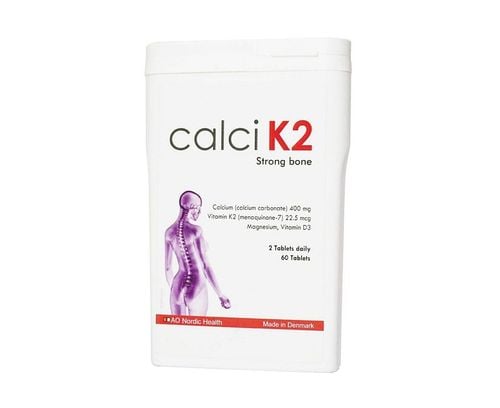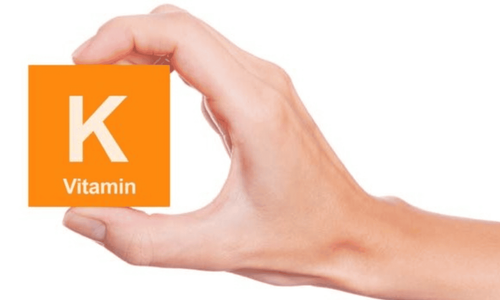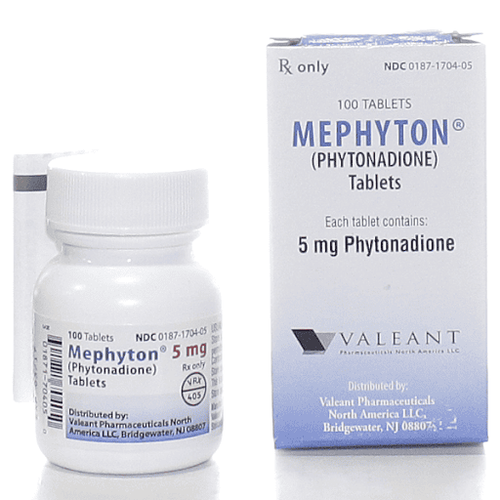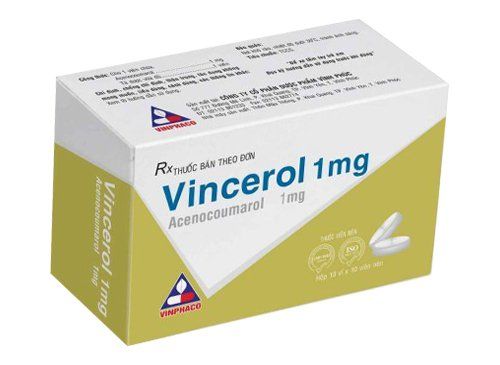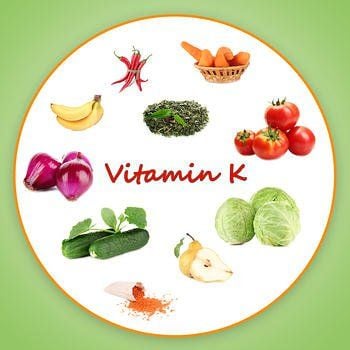This is an automatically translated article.
The article was written by Dr., Dr. Phan Nguyen Thanh Binh, Department of Pediatrics - Neonatology, Vinmec Central Park International General HospitalWhen a child develops spontaneous, unexplained bruising, he or she is deficient in one of the factors necessary for blood clotting. One of the important clotting factors is vitamin K.
1. What role does vitamin K play in the body?
Vitamin K includes phylloquinone-vitamin K1 naturally derived from plant foods, menaquinone-vitamin K2 derived from natural animal foods, produced by bacteria in the large intestine, and synthetic menadione - vitamin K3. Vitamin K is absorbed into the blood and taken to the liver to synthesize prothrombin, which is involved in blood clotting, and a number of other substances. Vitamin K has the function of participating in blood clotting and increasing the ability to attach calcium to bones for the skeletal system, muscles and kidneys.
2. How to recognize vitamin K deficiency?
The main manifestations of vitamin K deficiency are prolonged clotting time and bleeding. Vitamin K deficiency in children 0-6 months is life-threatening due to the risk of hemorrhagic meningitis.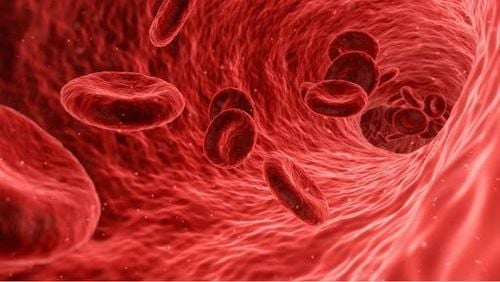
3. What are the harmful effects of excess vitamin K?
Vitamin K poisoning occurs only due to drug use, infusion of synthetic menadione to prevent vitamin K deficiency can be toxic to the liver.
Vitamin K poisoning does not occur due to excess vitamin K diet, even exceeding 50 times the daily requirement is still not toxic.
4. Prevention of vitamin K deficiency
The need for vitamin K is low and increases with age.
0-6 months: 4 micrograms (μg) 6-12 months: 7μg 1-2 years old: 60 μg 3-5 years old: 70μg 6--7 years old: 85μg 8-9 years old: 100μg 10-11 years old: 120μg 12- 14 years old: 150μg 15-17 years old: 160μg 18 years old and older: 150μg Vitamin K concentration in breast milk is low. Therefore, in infants who are exclusively breastfed, vitamin K should be supplemented immediately after birth with a dose of 1 mg/kg body weight.
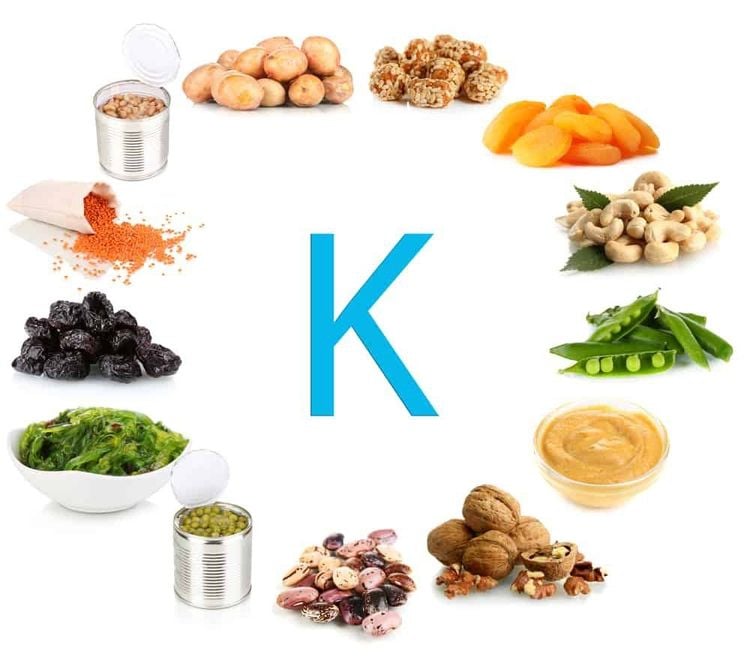
Vitamin K is found in green vegetables, tofu, cow's milk, meat, eggs and fruits. Just a small amount of these foods per day is enough to meet the vitamin K requirement. Therefore, infants who are supplemented with cow's milk or have started solids are not at risk of vitamin K deficiency unless Children with prolonged diarrhea, biliary obstruction, prolonged antibiotic use or some anticoagulants such as Dicumarol, aspirin. In these cases, children need to be supplemented with:
Bacteria that live in the intestinal tract such as Lactomin, Subtyl, Biolactyl..., Vitamin K 1mg And eat foods rich in vitamin K Vitamin K-rich vegetables:
5. One-day menu with foods rich in vitamin K for 1-2 year olds
5.1 Energy requirement: 1350 kcal
Protein: 35 g
Vitamin K: 60 μg
Children eat 3 main meals, 3 snacks and supplement with formula (if the child has stopped breastfeeding).
5.2 Breakfast menu: + Meat porridge 1 cup (180 kcal)
(Rice 30 g, lean meat 20g, spinach 20g, white sesame 2g, sesame oil 3g)
+ Tofu wrapped in fried dough, eat with sauce (100 kcal)
(soft tofu 1/5 pieces=80g, tapioca flour)
Snack: Flan 1 pc (90 kcal) Lunch: + White porridge 3/4 cup (80 kcal)
+ Steamed egg (145 kcal)
(Chicken 50g, onion 10g, egg 1 pc, sesame oil 3g or 1 teaspoon mixed with 1 tablespoon soy sauce, 100ml milk)
Snack: Milk 200ml Dinner: + Shrimp porridge 1 cup (180 kcal)
(30g rice, 20g peeled meat, 20g pumpkin, 3g sesame oil)
+ Yogurt 1 jar 100ml
Evening: Crab bamboo shoot soup 1 cup ( 115 kcal) (10 g tapioca starch, 150 ml chicken bone broth, 20g boiled crab lean, 10g shredded asparagus, 1 teaspoon 3g oil)
Night: 200 ml milk Menu: energy 1350 kcal, 130 μg vitamin K
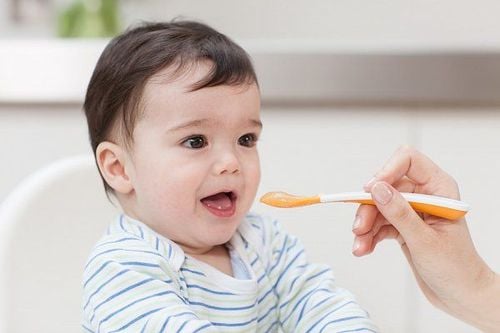
You should not arbitrarily supplement vitamin K for children, to avoid excess damage to baby's health. You should take your baby to a medical facility to be examined by a specialist. To protect your child's health, you should give your baby regular health check-ups to actively screen. Currently, Vinmec is providing a children's general health check-up program. In the health check-up package, your baby will have a comprehensive examination, from eyes, teeth, blood pressure, weight to necessary tests, combined with diagnostic imaging. The examination package helps you check your baby's overall health, screen for symptoms for early detection and treatment if needed.
Please dial HOTLINE for more information or register for an appointment HERE. Download MyVinmec app to make appointments faster and to manage your bookings easily.





